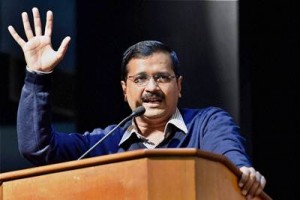Jaipur, Jan 27: Senior Congress leader Shashi Tharoor said that if the Citizenship Amendment Act leads to the implementation of the NPR and the NRC, it would be a complete victory for Pakistan's founding father, Muhammad Ali Jinnah.
He said that Jinnah's idea of a country was already winning in India with the contentious Citizenship Amendment Act (CAA) coming into effect, but asserted that there was still a choice available.
"I would not say Jinnah has completely won, but I would say Jinnah is winning. There is still a choice available to the nation between Jinnah's idea of a country and Gandhiji's idea of a country," he said on the sidelines of the Jaipur Literature Festival on Sunday.
The CAA came into force in India in December amid protests across the country and around the world.
The MP from Thiruvananthapuram said that the amended Citizenship Act took Jinnah's logic by declaring that religion shall be the basis of nationhood, reaffirming that Gandhi's idea is that all religions are equal .
"The CAA is, if you are talking Tennis, you would say one set up or big first set lead for Jinnah. But the next step would be if the CAA would lead to the National Population Register (NPR) and the National Register of Citizens (NRC). If that happens, then you would consider that Jinnah's victory is complete," he said.
The CAA seeks to grant citizenship to migrants belonging to Hindu, Sikh, Buddhist, Christian, Jain and Parsi communities who came to India from Pakistan, Bangladesh and Afghanistan on or before December 31, 2014.
On the BJP's defence that the NPR was carried out during the UPA regime, Tharoor said that the Congress government had utilised a decision of the NDA government led by former prime minister Atal Bihari Vajpayee.
"It never asked where were your parents born. It never authorised the enumerators to note on the margin 'dubious citizenship', a term used in the NPR rules crafted by this government. That is purely BJP's invention," he said.
If we go around this country authorising people to interview all the citizens, or identify some who have 'dubious citizenship', you can be pretty sure which Indians are going to be found on the 'dubious citizenship', he said.
"That will principally be one community that is not mentioned in the CAA. And if that happens, then it is indeed Jinnah's victory.
"From wherever he is, he can point to this place and say, 'see I was right in the 1940. We are separate nations and Muslims deserved their own country because Hindus cannot be just'," Tharoor said.
Speaking about the Delhi election, the three-time MP said that the maximum development in the national capital happened under the Congress government.
"What Sheila Dikshit did in her 15 years as Chief Minister of Delhi, no other leader could do it before or after her," he said.
 "It's not suicide. It's murder. It's murder of democracy, social justice and equality. (Prime Minister Narendra) Modi ji should sack ministers and apologise to the nation," Kejriwal said in a tweet.
"It's not suicide. It's murder. It's murder of democracy, social justice and equality. (Prime Minister Narendra) Modi ji should sack ministers and apologise to the nation," Kejriwal said in a tweet.



Comments
Dalits need to join hands and fight the injustice done by the so called elite criminals. When will U guys stop living in FEAR of this upper caste.. Everybody is equal in the eyes of GOD and no human is superior in the eyes of GOD and fear only GOD not human who says they are superior. Pejawar will never help in this matter... U guys are being deceived by the so called superior.
I feel proud that Prophet Muhammad pbuh taught us a beautiful teachings which says:
All mankind is from ADAM & EVE, An arab has no superiority over an non Arab NOR a non arab has any superiority over an Arab, Also A white has no superiority over black NOR a black has any superiority over white EXCEPT by PIETY and GOOD ACTION.
What it means is also A DALIT is as equal as any human being. Just like a MUSLIMs or any other people in the EARTH> When we follow God's religion. FEAR NOT. Fight for the oppression done by this Foxes who deceive people and keep the society in FEAR.
Add new comment